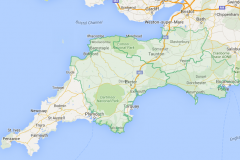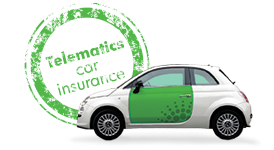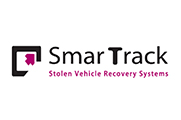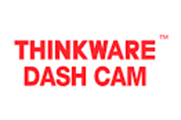
Black box car insurance: a young driver’s new best friend behind the dashboard
Telematics-based motor insurance is teaching novice motorists better skills and reducing what can be sky-high premiums
It’s the “black box revolution” that is slashing the cost of car insurance for young drivers, many of whom often struggle to find affordable cover. Figures have revealed a 40% surge in the space of a year in the take-up of so-called telematics-based motor insurance policies, with almost 455,000 people now using the technology to monitor their driving skills in exchange for cheaper premiums.
The British Insurance Brokers’ Association (Biba), which issued the data, says these policies can result in savings of more than £1,000 for some young drivers. Meanwhile, price comparison website Gocompare.com, which puts the average saving at £740, has seen a 155% increase in the number of telematics insurance policies bought between September 2014 and August 2015.
The popularity of these new-style policies is largely being driven by the youth market: 71% were taken out by motorists under the age of 25, compared with only 3% for over-50s, says Gocompare. Currently there are more than 30 insurers in the UK selling black box policies, including big brands such as Aviva, Admiral, Direct Line, Tesco and Co-op Insurance, alongside newer, specialist names such as ingenie and insurethebox. Drive iQ, a site with online tools designed to help young drivers, expects that one in four car insurance policies will be telematics-based by 2020.
With this type of technology, dubbed “the spy in your car”, your insurer will install a small device typically the size of a smartphone in your car – usually behind the dashboard – and/or it will ask you to use a mobile app. The black box or app will use GPS technology to record and transmit data about your driving habits back to your insurer. Different companies monitor different traits, but typically they will all be interested in when and where you’re driving; the type of road; how fast you’re going and whether you’re within speed limits; how forcefully you apply the brakes; and how you take corners.
There are three million young drivers aged between 17 and 25 on our roads, of which Biba estimates 10% have a black box device in their car. This age group are at much higher risk of crashing than older drivers: road safety charity Brake says drivers aged 16-19 are a third more likely to die in a car accident than those aged 40-49, while one in four 18- to 24-year-olds (23%) will crash within two years of passing their driving test. Yet the Road Safety Foundation says the crash risk for new drivers drops by 40% when they have a black box compared with those who don’t.
Richard King, the boss of ingenie, says: “One in five young drivers will crash within the first six months of passing their test, but within our ingenie community we’ve managed to reduce that to one in eight. We’ve seen the number of crashes reduced by 40%.”
YouTube vlogger Alfie Deyes, 22, whose main channel has 5 million subscribers, has just passed his test and agreed to have his car fitted with Direct Line’s telematics DrivePlus Plug-in device to monitor his driving for a year. The aim of the relationship, the insurer says, is to reach 17 to 19-year-olds, who make up only 1.5% of UK licence holders but are responsible for 12% of fatal and serious crashes, and help them become better drivers.Biba’s Graeme Trudgill says that using telematics “is absolutely a positive thing to do – it’s great for road safety and also great for young drivers, who have seen insurers knock about 25% off their premiums, saving them hundreds of pounds”.
However, price savings are not guaranteed for every user, as Bibin Kudilil, a 21-year-old mechanical engineering student from Queen’s University Belfast, found when he signed up for a black box policy between 2014 and 2015. Kudilil, who describes himself as a safe driver, was particularly disappointed when after a six-month trial period ended, he did not see a reduction in his premium. Neither did he get any feedback about his driving.
He says he will “never go back” to using a black box-style insurance policy. “I am over 21, so next year my insurance should be quite low and a black box will no longer matter to me. My premiums are already getting lower each year. This year I was charged £900, which is down from £1,400.”
Market research agency Consumer Intelligence agrees with Kudilil’s views, and says that renewals are one of the major issues for the telematics industry: “Telematics is great for the initial year of driving, but once you’ve got a year’s driving record you’re going to be able to get cheaper insurance in the second year anyway. The number of people who renew in the second and third year is a fraction of what it is in the rest of the market. As soon as young drivers grow up and get a couple of years of no-claims under their belt, they’re better off without a black box.”
Amy Cowell, 24, from Lancashire, has been driving since she was 19 and has had two accidents. So when the insurance for her Vauxhall Corsa came up for renewal late last year, she knew the quotes she would get would be higher than the norm for her age. Many came in at more than £2,000.
Alfie Thorn: ‘In my first year I saved just under £300 through good driving, and saved £700 when I renewed again,’
Alfie Thorn: ‘In my first year I saved just under £300 through good driving, and saved £700 when I renewed again.’ Photograph: Oliver Pohlmann
Inspired by an Aviva television advert promising lower premiums for careful drivers, she downloaded the company’s Aviva Drive app on to her smartphone and drove the required 200 miles to test her driving ability. Admitting that she is a nervous driver, she was pleased with a driving score of 8.2 out of a possible 10, which resulted in a cheaper insurance quote, saving her £400.
“My original quote from Aviva was £1,600, while other insurance companies quoted me £1,800 and £2,000 – and one even went up to £2,400,” she says. “At the end of the 200 miles Aviva sent me a new quote with a discount, which brought it down to £1,200 for the year.
“My premiums are high because I’ve had two accidents. One was due to me swerving because an animal ran out in front of me in the road – it was dark and raining and I didn’t really see what was happening. I’d only been driving 11 months and my car was a complete write-off. Since then I’ve been quite a nervous and cautious driver and I don’t like driving anywhere new.”
She says that at first she felt a little uneasy knowing that her driving was being monitored all the time by the app, and that it could affect her insurance. “I’m not a bad driver and don’t drive long distances – I average about 15 miles a day. But having someone know what I’m doing and where I’m going was a bit unnerving. The fact that everything was being monitored and that my phone, which was sat in a phone holder, could tell how I was driving, was scary. At the same time I was relieved, too, because it made me think about what I was doing and made me a lot slower, more steady.”
Meanwhile, Londoner Alfie Thorn, 18, has been using a telematics black box provided by ingenie for 15 months to reduce his premium and help improve his driving skills. The University of London student, who lives at home and uses his Ford Ka to visit family and friends, has been given feedback by the insurer’s app that he needs to focus on his cornering and braking, especially if he wants to reduce his premiums even further during the course of the year.
“I chose to have a black box in my car as this was the cheapest type of insurance,” he says. “Price is very important to me as I’m a student – without the black box option I wouldn’t have been able to drive. The next cheapest insurer was around £800 more a year.
“I think it’s good that I am being monitored, as I find myself being conscious about how I am driving – for example, my speed or braking. Also, the fact that I get driving feedback about every 10 days, and my policy reviewed every quarter, means I can easily reflect on areas of my driving that need improvement. Throughout my first year I saved just under £300 through good driving, and saved £700 when I renewed again, which was half the original price of my insurance.”
One of the UK’s leading telematics tech providers in the UK, Octo Telematics, provides the software, data and analytics to many major UK insurers. Its black boxes collect driving patterns such as acceleration, braking and cornering information, which is then put in the context of the type of road, the speed limit and the vehicle being driven. This data is given to underwriters, who can make a more accurate assessment of the young driver’s ability, which the firm says is better than the crude demographic traditionally used by insurance companies. It adds: “When you have the full contextual picture, telematics allows for more forensic and accurate pricing. The insurance company can treat their customers as individuals and not as a number. There are plenty of 17 to 25-year-olds who are very careful, sensible drivers, and telematics is there to prove that’s the case with data. Telematics puts the choice of whether to be a good driver or not into the consumer’s hands.”Some experts argue this technology offers other consumer benefits. For example, the black boxes can detect when a car has been involved in an accident and notify the insurance company as well as the emergency services. The data can also be used to reconstruct crashes to determine fault.
Andrew Bennett at telematics brand Coverbox says: “The data we can collect confirms the time, location and position of the vehicle at the time of the incident, the speed it was doing and any movement following collision. We can tell if the vehicle was stationary in a queue of traffic and was hit from behind, pushing it into the car in front, which would mean the driver was not at fault.”
This technology can also protect policyholders from false accusations being made against them. Richard King says: “One of our young drivers was recently arrested and accused of being involved in a serious crime. We were able to prove within moments that he wasn’t near the scene of the crime and that his number plates had been cloned.”
Whether you love it or loathe it, the use of telematics in the car insurance industry is set to continue. New cars rolling off the production lines are already installed with the next wave of on-board diagnostic tools, negating the need to install an actual device.
Within five years, predicts ingenie, insurers won’t just be giving feedback on how someone is driving, they will also be able to see the condition of the vehicle and give warnings to drivers when their car needs a service or if the battery is about to go flat. Insurers will soon be able to collaborate with motoring organisations so that if you break down, they will be able to use GPS tracking to locate you, as well as use the tech to remotely diagnose what has gone wrong.



